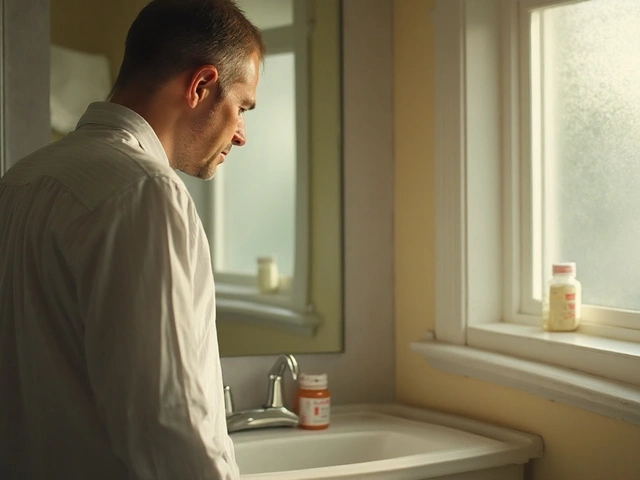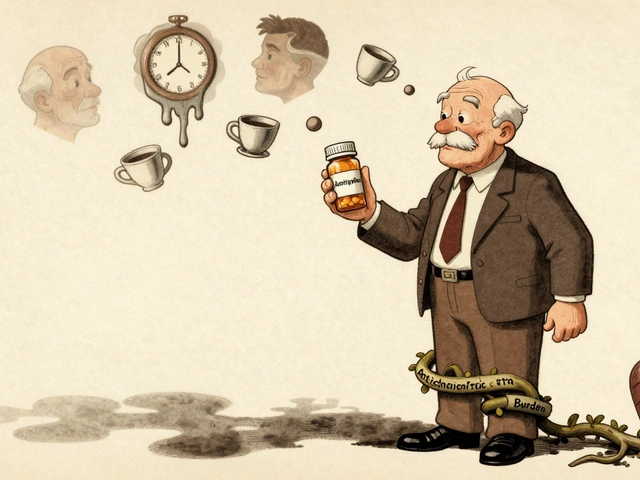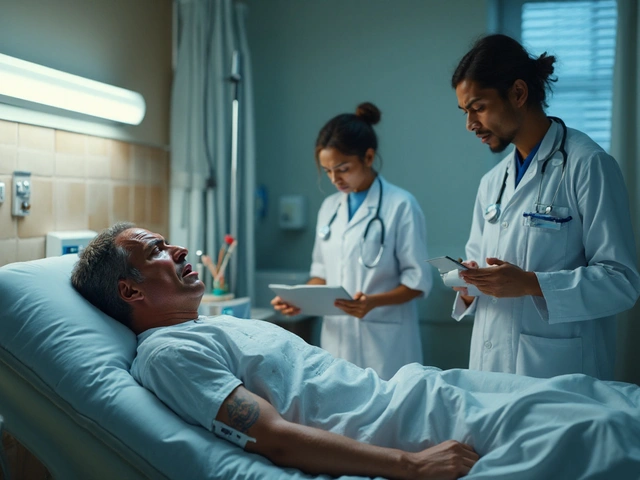Helicobacter pylori – What It Is and Why It Matters
Helicobacter pylori, often called H. pylori, is a bacteria that lives in the lining of the stomach. Most people carry it without any trouble, but in some cases it can cause stomach pain, ulcers, or even raise the risk of stomach cancer. The good news is that doctors can spot it easily and treat it with a short course of antibiotics.
Common Signs and When to Seek Help
If H. pylori is bothering you, you might feel a burning ache in the upper belly, especially when the stomach is empty. Other clues include nausea, bloating, frequent burping, or a feeling of fullness after just a few bites. Some folks notice weight loss or an iron‑deficiency anemia because the bacteria can affect how the stomach absorbs nutrients. If any of these symptoms stick around for weeks, it’s worth getting checked.
How Doctors Find the Bug
The easiest way to confirm H. pylori is a breath test. You drink a liquid with a harmless substance, and after a short wait you blow into a bag – the lab looks for specific gases that show the bacteria is present. Blood tests can spot antibodies, but they might stay positive long after the infection is cleared. A stool test works well too, especially for kids. In rare cases, an endoscopy with a biopsy is done, where a tiny camera looks directly at the stomach lining.
Once the test is positive, treatment usually means a combo of two antibiotics plus a proton‑pump inhibitor (PPI) that reduces stomach acid. This “triple therapy” lasts about 10‑14 days and clears the infection in most people. If the first round fails, doctors may switch to a different set of antibiotics or add a bismuth compound.
After treatment, a follow‑up breath or stool test is important to make sure the bug is gone. Trying the same antibiotics again won’t work if the bacteria have become resistant, so a fresh test guides the next steps.
Preventing H. pylori starts with good hygiene. Wash your hands thoroughly after using the bathroom and before handling food. Eating food that’s been cooked properly and drinking water from safe sources also cuts down the risk. In places where the infection is common, improving sanitation and clean water supplies makes a big impact.
Living with H. pylori doesn’t have to be a mystery. Knowing the signs, getting the right test, and following a proven treatment plan can get you back to feeling normal fast. If you’re unsure whether your stomach issues fit the picture, talk to your doctor – a quick test can give you peace of mind and a clear path forward.

Clarithromycin in Treating Gastritis and Peptic Ulcers - How It Works
- By : Tamsin Riverton
- Date : Aug 29 2025
Explore how clarithromycin, combined with other drugs, treats gastritis and peptic ulcer disease caused by H. pylori, including regimens, resistance and side‑effects.




